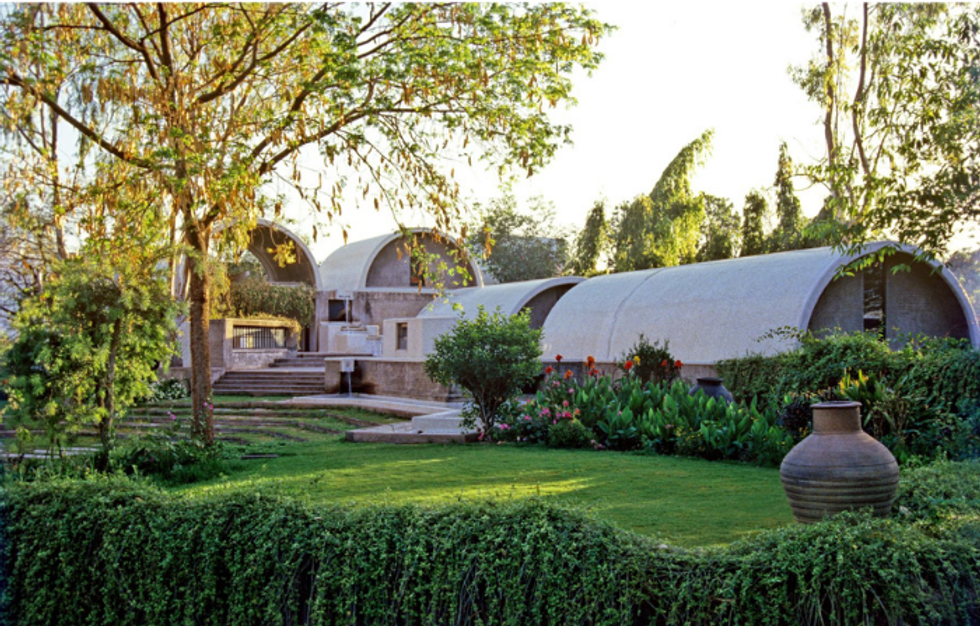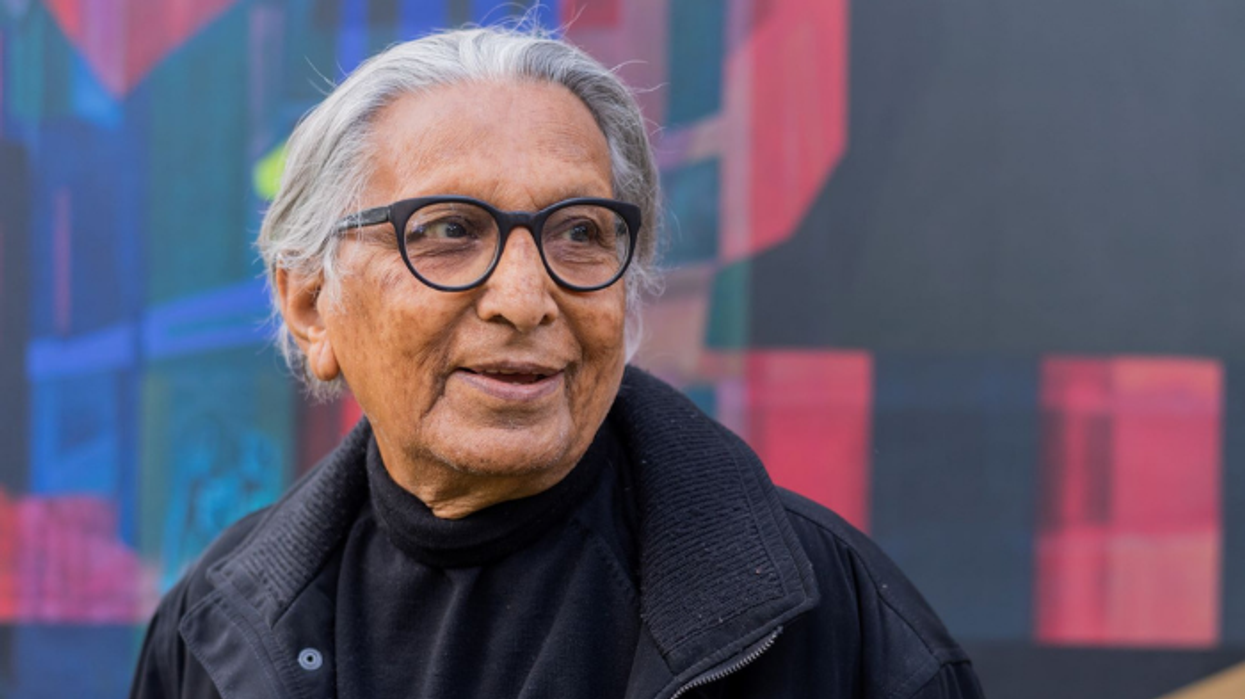THE Royal Institute of British Architects (RIBA) has decided to honour noted Indian architect Balkrishna Doshi with the Royal Gold Medal 2022, one of the world’s most prestigious awards in the field.
The medal, which is approved personally by the British queen and is awarded to a person or group of people for making a significant influence on the advancement in architecture, has been conferred since 1848. Doshi will be awarded the medal at a special ceremony next year.

Doshi was born in Pune in the then Bombay Presidency in 1927 and in a career spanning seven decades and covering more than 100 completed projects, he has influenced the direction of architecture in India and its adjacent regions through practice and teaching.
The man, who has worked under reputed architects such as Le Corbusier and Louis Kahn, has shaped cultural and administrative facilities, housing developments and residential buildings. He earned international fame for his visionary urban planning and social housing projects besides work in education – both in India and as a visiting professor at universities around the globe.
Doshi studied at the JJ School of Architecture in Mumbai (formerly Bombay) and went on to work with Corbusier as a senior designer in Paris between 1951 and 1954. He also worked for four more years in India to supervise projects in Ahmedabad in the western Indian state of Gujarat.
He also worked with Kahn as an associate to build the Indian Institute of Management - Ahmedabad, and they continued to collaborate for more than a decade.
He founded his own practice, ‘Vastushilpa’ (architecture) in 1956 with two architects. Today, Vastushilpa is a multi-disciplinary practice with five partners spanning three generations and has 60 employees. The practice invites dialogue and its philosophy of pro-active participation even applies to their office space – which has an open door, inviting passers-by to drop in.
Some of the key projects involving Doshi are: Shreyas Comprehensive School Campus (1958-63), Ahmedabad, India; Atira Guest House (1958), Ahmedabad, low-cost housing; the Institute of Indology (1962), Ahmedabad, etc.
His Aranya Low Cost Housing (1989), Indore, India, won the Aga Khan Award for Architecture in 1995 and Amdavad ni Gufa (1994), a cave-like art gallery that exhibits the work of late Indian artist Maqbool Fida Husain.
Reacting to the news of receiving the Royal Gold Medal, Doshi, who works every day at 94, said, “I am pleasantly surprised and deeply humbled to receive the Royal Gold Medal from the Queen of England. What a great honour!
“The news of this award brought back memories of my time working with Le Corbusier in 1953 when he had just received the news of getting the Royal Gold Medal. I vividly recollect his excitement to receive this honour from Her Majesty. He said to me metaphorically, ‘I wonder how big and heavy this medal will be.’ Today, six decades later I feel truly overwhelmed to be bestowed with the same award as my guru, Le Corbusier - honouring my six decades of practice. I would like to express my heartfelt gratitude to my wife, my daughters and most importantly my team and collaborators at Sangath my studio.”
RIBA president Simon Allford said, “It was an honour and a pleasure to chair the committee in selecting Balkrishna Doshi as the 2022 Royal Gold Medallist. At ninety-four years old he has influenced generations of architects through his delightfully purposeful architecture.
“Influenced by his time spent in the office of Le Corbusier his work nevertheless is that of an original and independent thinker – able to undo, redo and evolve. In the twentieth century, when technology facilitated many architects to build independently of local climate and tradition, Balkrishna remained closely connected with his hinterland: it’s climate, technologies new and old and crafts.
“Balkrishna Doshi’s outstanding contribution to the art of architecture, the craft of construction and the practice of urban design establish him as a most deserving recipient of this award and I greatly look forward to him being presented with the medal next year.”
Indian prime minister Narendra Modi on Friday (10) congratulated Doshi over his feat, tweeting, "Spoke to the distinguished architect Shri Balkrishna Doshi Ji and congratulated him on being awarded the Royal Gold Medal 2022. His contributions to the world of architecture are monumental. His works are globally admired for their creativity, uniqueness and diverse nature."
Doshi, who was made a foreign honorary member of the American Academy of Arts and Letters this year, is the recipient of the Padma Bhushan; The Pritzker Architecture Prize (2018); the French Ordre des Arts et des Lettres (2011); Global Award for Lifetime Achievement for Sustainable Architecture, Institut Francais d’Architecture, Paris (2007); Prime Minister’s National Award for Excellence in Urban Planning and Design, India (2000); Aga Khan Award for Architecture (1993-1995) and the Gold Medal, Academy of Architecture of France (1988).




